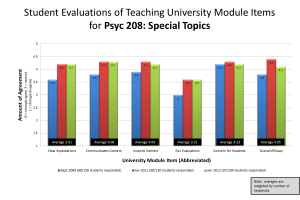 This past weekend I completed the UBC Sprint Distance Triathlon! It was my first triathlon ever, and it’s something a year ago I said I’d never do (I’ve since stopped saying such foolish things!). It was also my first sustained attempt to swim and bike since I was a kid playing around at the pool and on my street. So when I came in last place in my age group at a total time of 2h4mins, I felt nothing but pride at having finished so strongly. My purely positive reaction to coming in last place surprised me a little. I’ve entered running and walking events before, and I’ve usually finished toward the middle/end of the pack. But coming in dead last is something else entirely. If I had any inkling of judging my success in terms of how I did relative to others, coming in dead last means failure. There is no way to hide behind “at least I didn’t finish last!” defense.
This past weekend I completed the UBC Sprint Distance Triathlon! It was my first triathlon ever, and it’s something a year ago I said I’d never do (I’ve since stopped saying such foolish things!). It was also my first sustained attempt to swim and bike since I was a kid playing around at the pool and on my street. So when I came in last place in my age group at a total time of 2h4mins, I felt nothing but pride at having finished so strongly. My purely positive reaction to coming in last place surprised me a little. I’ve entered running and walking events before, and I’ve usually finished toward the middle/end of the pack. But coming in dead last is something else entirely. If I had any inkling of judging my success in terms of how I did relative to others, coming in dead last means failure. There is no way to hide behind “at least I didn’t finish last!” defense.
In my Psyc 208 class on Tuesday, I was teaching about motivation. As I explained the difference between motivation derived from a self-defined mastery approach versus a social-comparison-driven ego approach, I was quite aware of my recent performance in the triathlon. I was also quite aware that I took a mastery approach to understanding that performance. I felt like I had successfully completed the triathlon. I finished, and I had felt strong and happy the whole way through — it was fun just being out there on the course! Yet, I know deep down that as much as I take a purely mastery approach to my athleticism, it’s much harder for me to take that approach in my career. You see, my athleticism is new. It’s a new aspect of my identity that I’m playing around with. I’ve been building confidence by taking baby steps over the past three or four years (starting with “I think I could run for a minute” on a treadmill, and surprising myself that I could. Really.). No one had any expectations of me in this domain, least of all myself. Taking a mastery approach to athletics is easy.
Yet who I am as a teacher hits deeper to the core of who I am. This is my chosen field, my area of specialization I have chosen to cultivate because I enjoy doing it and derive great meaning from it. I have been hired into this fantastic and extremely demanding job because other people think I am and will continue to be successful in this domain. And I’d be lying if I said I took a completely mastery approach to judging my success. Social comparisons are so easy to do: How do my student evaluations compare with someone else’s? Are my tests and assignments as fair and challenging as they possibly can be? Am I doing enough to foster community and learning in my classes? Should I be focusing more on initiatives within the department rather than at the university level or beyond? That person is publishing more than I am… does that mean I’m not doing enough? Even letting these questions come into my consciousness at this moment is triggering insecurity… and I think a lot of that insecurity comes from comparing myself to other people. The reality is there will always be someone who seems better than me in some way. But that doesn’t mean I’m not good enough.
Completing my triathlon is an opportunity for me to (re)think about how I define success in my career. If my triathlon experiences can be extrapolated (and I don’t see why not), I think I will experience more moments of joy and fewer moments of anxiety from my career when I commit to setting my own standards and define success as mastering those. (I’m lucky enough to have a career in which I have a fair amount of autonomy in this way.) I have tried to do this somewhat, but this is a chance for me to take this attitude change more seriously. Like the triathlon, those standards will be demanding, but they’ll be mine. And when I reach them, I’ll be able to experience joy and pride for myself, but also for others who are on their own paths, achieving their goals.

 Follow
Follow
